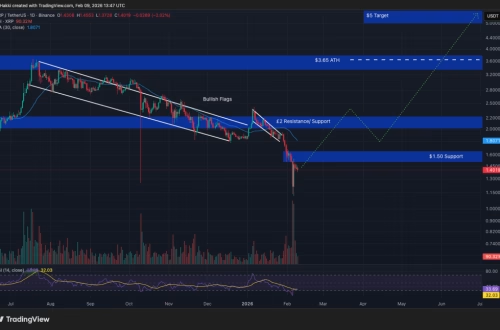best crypto to stake on Ethereum 2.0
Summary:
Staking on Ethereum 2.0 offers an opportunity to earn passive income while supporting blockchain security. This article explores the best cryptocurrencies to stake on Ethereum 2.0, including ETH, Lido DAO (LDO), and Rocket Pool (RPL), highlighting their benefits and risks. Understanding staking rewards, validator requirements, and DeFi integrations will help investors make informed decisions. Whether you’re new to crypto or a seasoned investor, this guide provides key insights for maximizing staking returns on Ethereum 2.0.
What This Means for You:
- Passive Income Potential: Staking allows you to earn rewards on idle crypto holdings without active trading. By choosing high-yield assets, you can generate steady income while supporting network security.
- Lower Barrier to Entry with Liquid Staking: Platforms like Lido and Rocket Pool enable staking with smaller amounts of ETH, avoiding the 32 ETH minimum requirement. This makes Ethereum 2.0 staking accessible to more investors.
- Consider Long-Term Lock-Up Periods: Staked ETH is locked until future Ethereum upgrades. Ensure you’re comfortable with reduced liquidity before committing.
- Future Outlook or Warning: Staking rewards may fluctuate due to network demand and validator competition. Additionally, smart contract risks exist when staking via third-party platforms—always audit protocols before delegating funds.
Explained: best crypto to stake on Ethereum 2.0
Why Stake on Ethereum 2.0?
Ethereum 2.0 (Eth2) transitioned from Proof-of-Work (PoW) to Proof-of-Stake (PoS), enabling users to earn rewards by locking crypto in the network. Staking enhances scalability, reduces energy consumption, and decentralizes validation. For participants, it’s a way to contribute to blockchain operations while earning yields, often ranging from 4% to 10% APY.
Top Cryptos to Stake on Ethereum 2.0
1. Ethereum (ETH)
ETH is the native asset of Ethereum 2.0 and the most straightforward choice for staking. Validators need 32 ETH, but liquid staking platforms (e.g., Lido) allow smaller deposits. Rewards vary based on network activity but typically hover around 5-6% APY.
2. Lido DAO (LDO)
Lido offers liquid staking derivatives (stETH), letting users stake ETH without maintaining infrastructure. stETH can be used in DeFi for additional yield. However, Lido’s centralization risks and smart contract vulnerabilities require caution.
3. Rocket Pool (RPL)
A decentralized alternative to Lido, Rocket Pool allows staking with as little as 0.01 ETH. Node operators bond RPL tokens, adding an extra layer of security. RPL stakers earn rewards in ETH and RPL, with APYs up to 8%.
Comparison of Staking Options
| Crypto | Min. Stake | Rewards (APY) | Liquidity |
|---|---|---|---|
| ETH (Solo) | 32 ETH | 5-6% | Locked |
| Lido (stETH) | 0.01 ETH | 4-7% | Liquid (DeFi) |
| Rocket Pool | 0.01 ETH | 6-8% | Liquid (rETH) |
Risks and Limitations
Smart contract exploits, slashing penalties, and regulatory uncertainties are key risks. Validators must maintain uptime, and staked ETH withdrawals remain locked until future upgrades. Diversifying across protocols mitigates single-point failures.
People Also Ask About:
- Can I unstake ETH 2.0 anytime?
No, staked ETH is locked until Ethereum’s Shanghai upgrade enables withdrawals. Liquid staking tokens (e.g., stETH) allow trading but may trade at a discount. - Is staking safer than trading?
Staking reduces exposure to market volatility but carries smart contract and slashing risks. Use audited platforms like Lido or Rocket Pool to minimize risks. - How do I choose a staking pool?
Compare APYs, fees, decentralization levels, and track records. Avoid pools with opaque governance or high centralization. - What’s the tax implication of staking rewards?
Rewards are often taxable as income. Consult a tax professional to comply with local regulations.
Expert Opinion:
Staking on Ethereum 2.0 is a compelling way to earn passive income, but it requires due diligence. Diversify across protocols to mitigate risks, and prefer decentralized options like Rocket Pool for long-term sustainability. Regulatory scrutiny may impact yields, so stay informed about policy changes. Always verify smart contract audits before staking significant amounts.
Extra Information:
- Ethereum Staking Guide: Official resource detailing validator setup and rewards.
- Lido Finance: Explore liquid staking with stETH and DeFi integrations.
- Rocket Pool: Decentralized staking with lower ETH requirements.
Related Key Terms:
- best crypto to stake on Ethereum 2.0 for beginners
- Ethereum staking rewards comparison 2024
- liquid staking vs traditional staking Ethereum
- how to stake ETH without 32 coins
- Rocket Pool vs Lido staking returns
- risks of staking Ethereum 2.0
#Crypto #Stake #Ethereum #ETH #Top #HighYield #Tokens #Strategies
Featured image generated by Dall-E 3





